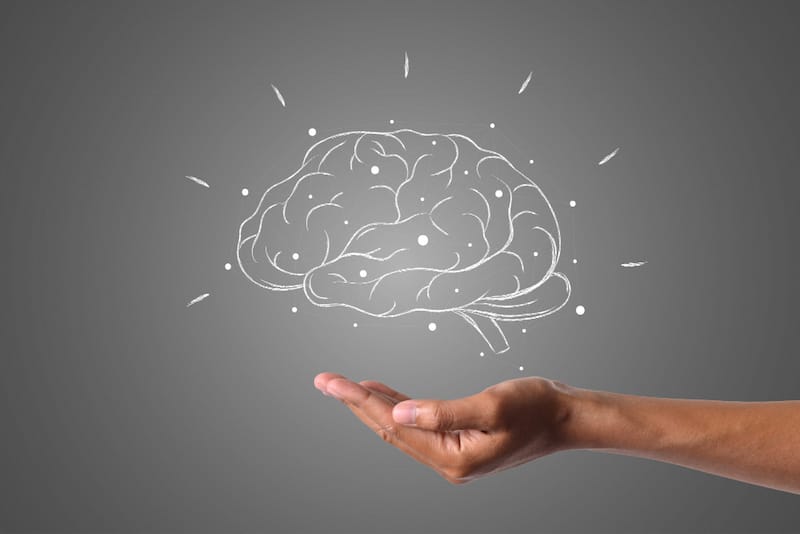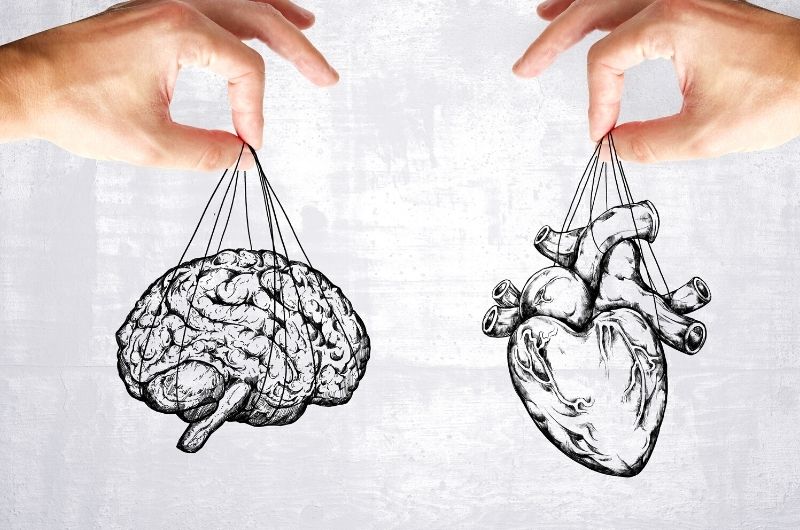The heart is the fist-sized primary organ of your circulatory system that’s solely responsible for pumping blood throughout your body. The brain is a far more complex organ in comparison that’s responsible for the control of your memory, emotion, and motor skills. While the heart plays a vital role in human life, the brain has proven to be more medically important due to its complexity and because of the lack of medical advancements in the field of the brain when compared to the heart. This can be proven by various complications that injuries to the brain can cause and the risk involved in brain surgeries that can turn you into a ‘vegetative state.’
The question of which is the most crucial organ for human life has been an unending debate in the medical world.
With upcoming medical discoveries in the modern world, it’s not puzzling that this debate still exists, due to the amount of relevance that the health of the heart and brain has for us to function as normal human beings.
Although we cannot exactly weigh and balance which organ surpasses the other since both are important to living, we can come to understand which organ holds more responsibility and which organ poses a bigger threat to life if it malfunctions.
What importance does the heart hold? What importance does the brain hold? What is the medical answer to this never-ending debate? What are the complications of brain and heart injuries? Is brain surgery or heart surgery more dangerous?
Importance of the heart

The heart, playing a central role in our circulatory system, is solely answerable for the pumping of blood and the transportation of oxygen and nutrients to the rest of the body.
Therefore, the heart, alongside the brain, has earned the title of being one of the body’s most important organs since even a slight malfunction could cause fatal impacts on human life.
The essential functions of the heart are listed out below:
- Pumping oxygenated blood to all body parts. – According to the US National Library of Medicine, the heart pumps about 5.7 liters of blood throughout the body.
- Pumping hormones – The heart is not only responsible for pumping blood but is also known to carry hormones and other nutrients needed for the body through the blood.
- Removes waste – The heart also removes deoxygenated blood and any metabolic waste materials like carbon dioxide from the body and transports them into the lungs for oxygenation.
- Maintaining blood pressure – The heart is also solely responsible for maintaining our blood pressure.
Importance of the brain

The brain too, is constantly debated to be the most essential organ, so let’s find out the functions and importance of the brain.
To put it simply, the brain controls and coordinates our actions and reactions.
The entire thinking process, our memories and everything we feel, and everything that makes us human is related to our brain.
Our brain is divided into three parts known as the…
- Cerebrum,
- Cerebellum,
- and Brain Stem.
Each has unique functions, as shown in the following table as per the US National Library of Medicine.
| Cerebrum functions | Cerebellum functions | Brain stem functions |
|---|---|---|
| In charge of movement and touch | It’s known as the movement control center and has a vast amount of nerve cells | In charge of our consciousness and cardiac function |
| Responsible for vision and hearing | Responsible for fine motor skills. | Responsible for aiding in essential functions like breathing and swallowing |
| Maintains body temperature | Maintains balance and posture | It’s responsible for involuntary muscle movements |
| It’s in control of judgment, reasoning, and problem-solving | It’s in control of voluntary muscle movements. | The brain stem controls eye and mouth movements |
| In charge of our emotions and capacity to learn | In charge of equilibrium in our bodies | In charge of sensory relays and hunger |
Which is more important, the heart or the brain?
Once we compare the importance of the heart and brain separately, we can conclude that while the heart does carry out crucial functions for humans to live, the brain’s functions are more intricate and subtlety involved in our body control, thoughts that are simple yet essential for day-to-day activities of our bodies.
It’s also important to note that the past years of technological advancement have led to the discovery of transplanting an artificial heart if one’s own heart is giving away.
According to a 2015 study conducted, the total artificial heart was found to be a form of mechanical circulatory support that can replace a patient’s native ventricles and valves.
Although such medical advancements for hearts exist, the same cannot be said for brains, as medical science is not expecting the possibility of brain transplant or the invention of an artificial brain anytime soon.
This aspect multiplies the importance of the brain when compared to the heart.
Did you know that if a heart dies from cardiac arrest, it can be brought back to life through a process known as cardiac resuscitation?
Yes! It’s exactly how movies have shown us.
Mouth-to-mouth breathing and chest compressions are enough to temporarily pump blood to the brain until specialized treatment is available, as verified by the US National Library of Medicine.
Even abnormal heartbeats can be temporarily solved by using methods of cardioversion which doctors use to send electric shocks to your heart by pressing electrodes on your chest.
Sadly, if your brain dies, it’s far riskier and difficult to bring it back to life.
You might’ve also noticed that a medical death is pronounced only once the brain is declared dead and not when the heart is.
This clearly shows that scientifically, the brain holds a more special status than the heart does, although both are needed to survive.
Complications of brain injury vs. heart injury

Although protection of the brain may be given heavier weight than of the heart because of limited medical advancement in brain-related treatment, injury or diseases affecting both the brain and heart can be equally damaging, as shown in the table below.
| Brain complications | Heart complications |
|---|---|
| Alzheimer’s disease – This is a brain disorder that erases your memory at a slow pace. It gradually causes a decline in your thinking skills to the extent that you cannot do a simple task. There’s no cure yet found for this condition, although its symptoms can be reduced. | Heart attacks – This happens when your heart muscle isn’t getting enough blood and can be fatal. While coronary heart disease cannot be cured, treatments are available to minimize the occurrence of heart attacks. |
| Dementia – This is caused by damage to brain cells where you lose your cognitive functioning, just as Alzheimer’s does. The NHS has released a statement of no cure for this disease, while studies and research is being made to discover a remedy. | Heart failure -This occurs when your heart muscle slowly stops pumping blood. Blood can then collect in your lungs and cause breathing difficulties. This is a long-term condition that can’t be cured, but its symptoms can be controlled. |
| Parkinson’s disease – This too is a gradually worsening brain disorder that can cause imbalance, shaking, stiffness, and difficulty walking and talking. While there is no cure for this condition, treatment to control its symptoms exists. | Stroke – Although a stroke occurs within your brain due to the bursting of a blood vessel, it’s considered a heart disease since it’s the heart’s duty to pump blood through the vessels. The damage done by a stroke can be cured, but there’s a risk of falling into a coma after a stroke. |
| Epilepsy – Although this disorder is neurological, it causes your brain activity to be abnormal and often results in seizures. There is no cure for this disorder, although it can be managed to an extent by medications. | Arrhythmia – This refers to an irregular heartbeat that could be slower or faster than normal. However, if untreated, it could read to serious complications like heart attacks and stroke. |
| Brain cancer – This can happen as a result of the development of cancerous cells within your brain. It can grow slowly or at a fast pace. While there is no cure yet found, unfortunately, it can be fatal depending on your age. | Heart valve complications – This can include various abnormalities like stenosis and regurgitation. Stenosis is when the heart valves don’t open enough for your blood flow, and Regurgitation is when they don’t close properly. |
Is brain surgery or heart surgery more dangerous?
While any kind of surgery may pose threats to life if some sort of medical error or complication arises, the riskiest of it all caters to brain and heart surgeries.
While both brain and heart surgeries can be equally risky, there’s a slightly heavier weight of riskiness involved with the brain.
The reason for this is that the brain is the organ that keeps our entire body in balance and control.
As we looked at previously, our brain controls all our motor functions, emotions, and voluntary and involuntary actions.
So, if a problem occurs during brain surgery, you may be looking at a situation where you completely lose control of your body.
Severe brain damage could lead to a disorder in consciousness, also known as a vegetative state.
Someone in this state may look like they’re awake, but they won’t be aware of what’s happening around them, which is quite a scary occurrence.
So, in this aspect too, the brain can be placed a little ahead of the heart in its importance for the survival of the human body.
Conclusion
It’s best not to give priority to one or the other since your brain and heart health are connected, according to the Center for Disease Control and Prevention.
By keeping your heart healthy, you’re also reducing the risk of brain complications like dementia and stroke.
You can ensure your brain and heart health by staying away from tobacco, minimizing alcohol intake, eating healthy, staying active, and controlling your blood pressure, cholesterol and diabetes.
In this day and age, heart and brain health is of the utmost importance, and if you can ensure its health by following simple habits, then it’s about time you get started on it.


